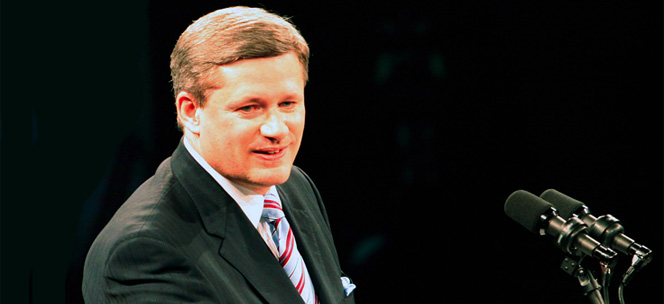Harpauer delivers early returns on hard work

Here’s an important number the Finance Minister Donna Harpauer didn’t highlight in the final accounting for last year’s budget: Saskatchewan will save about $15 million on interest charges each and every year because the operational deficit got smaller.
That’s $15 million that won’t flow out of the province to bond-fund managers on Bay Street and Wall Street. That’s $15 million staying in Saskatchewan that can lighten the tax burden for families and operate schools and hospitals. It’s also the reason thousands of tough decisions in the provincial budget are so important.
The Saskatchewan government recently released last year’s final books and here’s the bottom line: the operational deficit was $393 million lower than budgeted.
Harpauer was humble about the accomplishment.
“What strengthened last year’s budget, quite frankly, was largely crop insurance,” said Harpauer. “There was a good crop year and therefore our crop insurance claims were less than what was anticipated.”
Harpauer’s right. The blessings of sun and rain at the right times kept agriculture spending $315 million under budget. While it’s right for Harpauer to recognize the role of good fortune, it’s also good to recognize what she did with it.
When a government sees big savings on the horizon, there’s a huge temptation to relax spending controls. Harpauer could have started spending those crop-insurance savings even before the crop was off. The numbers show a different story.
Saskatchewan’s overall operational spending came in $489 million under budget. While spending for health and social services went up, spending was under budget in seven out of 11 major expense categories. This suggests a shift in government culture. Every minister, deputy minister and assistant deputy minister now knows a world of woe awaits any frivolous request for new cash. Instead, the government is refocusing funding to work within existing budgets.
On the revenue side, there’s one big number to remember: $808 million more from the PST. Every Saskatchewanian’s PST bill went up an average of $690 last year largely because the government raised and expanded the tax. That’s a heavy blow to household budgets. It’s a drag on businesses still shakily recovering with slowly recovering commodity prices.
While the PST is the big revenue story, there are important subplots.
Overall revenues were $146 million under budget, but the government didn’t use that drop as an excuse to let the deficit rise.
There’s evidence of another cultural shift on the revenue side. In the past, the government often banked its budget on optimistic oil-price projections. That seems to have changed. Last year, the government projected an oil price of $56 per barrel and it came in at $54. That bodes well for the future: the current budget projects $58 per barrel oil and the current price is fluttering around $70.
Despite the important progress, Harpauer can’t rest easy while one big number looms over the provincial finances: $9.25 billion in taxpayer-supported debt. (That’s in addition to $8.26 billion in Crown corporation debt.) That taxpayer-supported debt has nearly doubled from $4.74 billion in 2015.
During the Saskatchewan Party leadership race, Premier Scott Moe signed the Canadian Taxpayers Federation’s pledge promising to “implement a plan committed to reducing the province’s taxpayer-supported debt by 2022.” Harpauer has made important progress to slow the debt’s growth and now she needs to keep the premier’s promise to start paying it down.
Here’s one more important point: history shows governments can’t slay a deficit without spending less money. The province spent $14.8 billion in 2017. It spent $14.3 billion in 2018. That’s important progress.
Minister Harpauer has a lot of hard work ahead, but saving $15 million on interest charges is the first fruit from the hard work already underway.